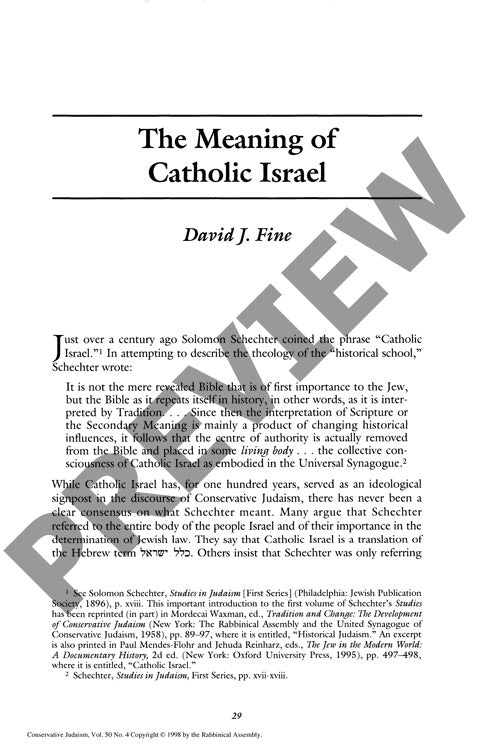The Meaning of Catholic Israel
Couldn't load pickup availability
Solomon Schechter's concept of "Catholic Israel," a cornerstone of Conservative Judaism for over a century, has been interpreted in three distinct ways: as the contemporary Jewish people (כלל ישראל), as a core group of observant Jews engaged in halakhic decision-making, and as Judaism's collective historical consciousness. Through textual analysis of Schechter's writings and examination of subsequent scholarly discourse, a striking pattern emerges - those closest to Schechter, including Henrietta Szold, Joseph Hertz, and Cyrus Adler, consistently understood Catholic Israel in historical terms rather than as contemporary Jewish opinion. When Robert Gordis redefined the concept in 1942 to mean only committed observant Jews, he fundamentally shifted its meaning from conservative to liberal, though this interpretation has often been misattributed to Schechter himself. The research methodology encompassed analysis of primary sources, evaluation of scholarly interpretations, and investigation of how successive generations of Conservative Jewish thinkers have applied the concept. Evidence reveals that Schechter's original vision of Catholic Israel was distinctly historical - the authoritative voice for Jewish law and practice emerging from the collective conscience of the Jewish people, shaped by two millennia of experience, rather than any contemporary community or synod.

More Information
-
Physical Description
-
Publication Information
Published 1998
ISBN
-
Publication Credits
David Fine

